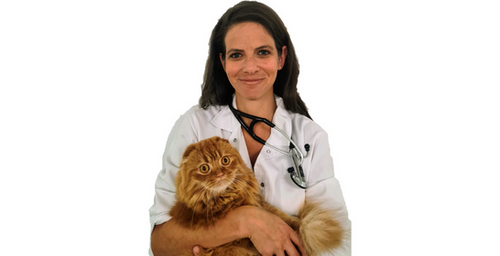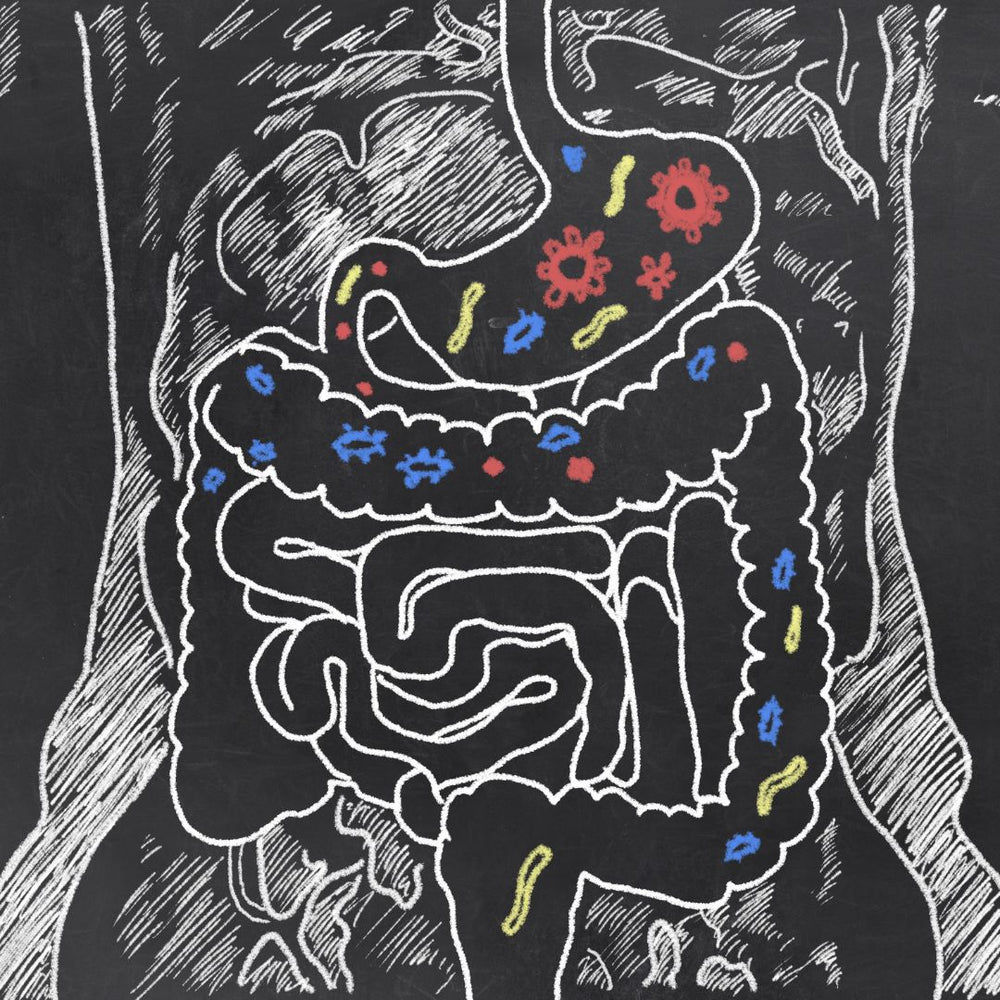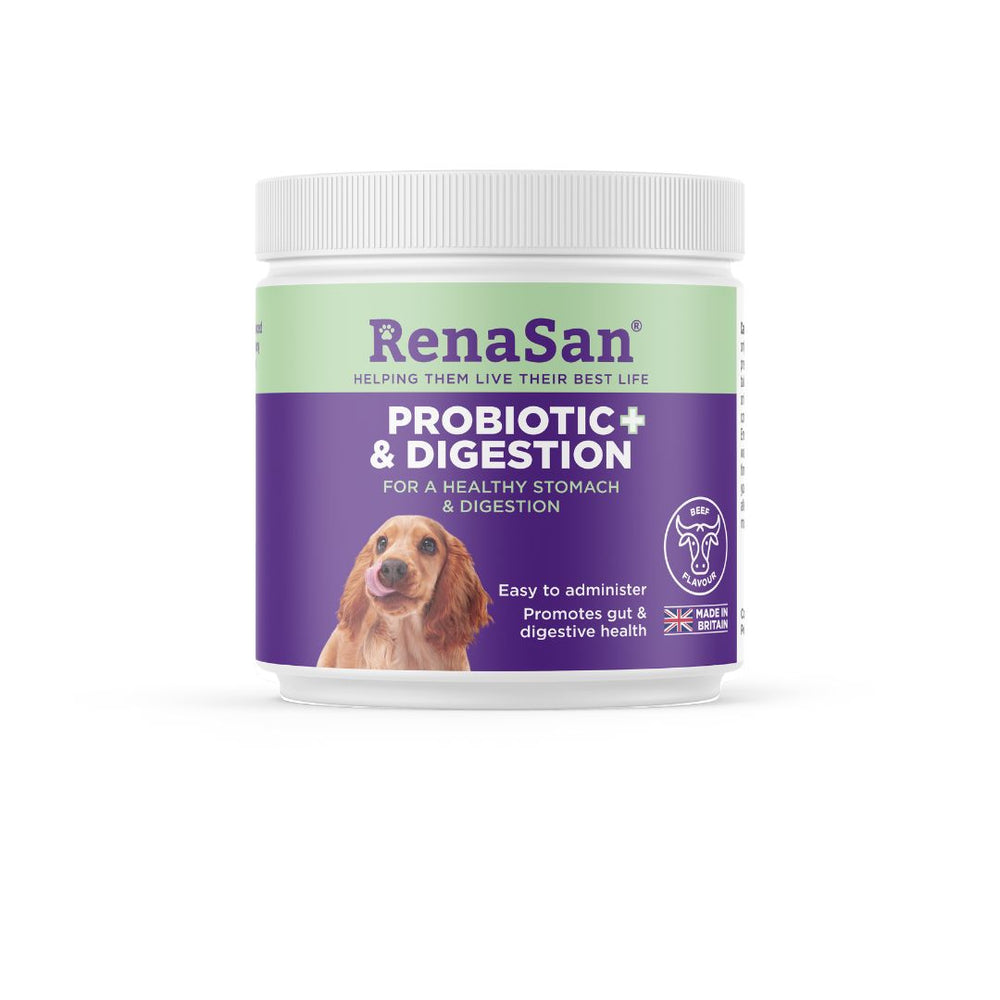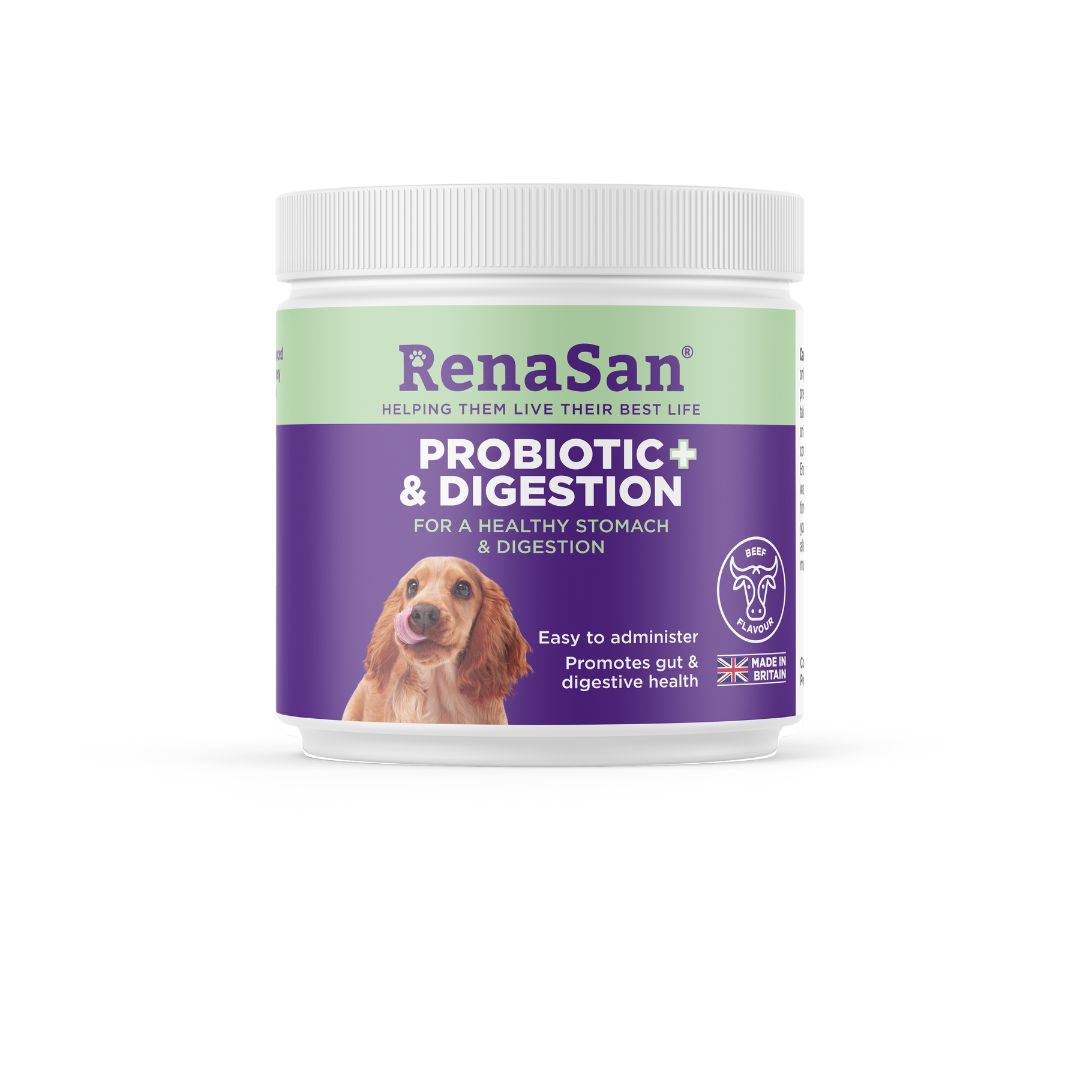Should my pet take Probiotics?

Dr Mattea Ruth Lenhoff BVetMed MBA MRCVS
Qualifying in 2007 from the renowned Royal Veterinary College in London Dr Mattea has immense knowledge through her work as a Snr. Veterinary Surgeon and Regional Head Vet for one of the UK's largest Veterinary Groups.
What are Probiotics?
Did you know that this is the meaning of the word probiotic? If you have a talent for languages, you may know that pro comes from the latin word meaning for and bio is Greek for life.
Probiotics along with prebiotics are two forms of dietary supplements to help promote healthy gut microbiota.
You have probably heard more and more people talking about microbiota or the microbiome. Perhaps the two terms have even been used by people interchangeably. But what are they and why are they important?
Microbiota & Microbiome?

Our body is also the home to a community of microorganisms, smaller than the human eye can see.
Therefore, the microbiota refers specifically to the collection of microorganisms that live in a particular environment or on a particular host organism. So, in our case, it is the millions, billions or even trillions of tiny little microbes that inhabit the human body.
Bacteria are the most plentiful of these microbes in their number though humans also host other single cell organisms called archea, fungi, viruses and other bacteria attacking viruses.
We sometimes think of microbes as bad things that should be eliminated or avoided, since we can all think of examples of disease-causing viruses affecting people in recent years. Familiar examples include COVID 19 or the flu. Perhaps we have also eaten great tasting food that later made us unwell and thought it could be bacterial food poisoning.
However, it is important to realise that most microbes do not make us sick, in fact many are important for our health.
They can be detected in the oral cavity and inside the digestive tract. Additionally, the surfaces of the body exposed to the external environment (an example is the skin) are colonized by microbiota. They live in peaceful coexistence with their hosts and play an essential part in maintaining health. Furthermore, microbes living within the body play a pivotal role in discussions involving public health, drug research, skincare and cosmetics.

It is helpful to precede microbiota by the name of the environment location, for example, ‘gut microbiota’ refers to the microbiota in the intestinal tract.
The distinction of the microbiome is that the microbiome refers to the genes of the microbiota; the community of microorganisms, the microbial structural elements, metabolites, with the environmental conditions.
Put simply the difference is:
The microbiota are the bugs found in a defined environment.
The microbiome are the bugs and their genes in the environment.
How is this relevant to animals?
Well, pets also have their own unique microbiome which is crucial for their health and a delicate balance exists between good and bad microorganisms.
An unbalanced microbiome may lead to problems with our pets. Problems can present in different locations, though we see these frequently in the gut or oral cavity.
Certain triggers or circumstances can occur to upset this balance and beneficial microbes can become damaged or destroyed.
Stress, weaning, changes in diet, high carbohydrate foods, spoiled foods, infections including parasites and antibiotic medication can also alter the balance which can lead to digestive disease.
Puppies and senior dogs may also be more susceptible to imbalances.
What signs can be seen as a result of these imbalances?
Health issues may include:
- Gastrointestinal problems such as gas, diarrhoea, abdominal cramping and bloating.
- Oral problems gum disease and bad breath.
- Skin problems.
What can I do for my pet?
Introducing probiotics and prebiotics into your pet's diet permits the opportunity to positively influence their health.
Some benefits of probiotics include:
• Assist with digestion of food in pets with digestive problems that include diarrhoea, flatulence and constipation.
• Maintain a strong immune system by stimulating antibody production in addition to other immune cells to fight illness and infection.
• Promotion of a health gut flora which improves the production and absorption of nutrients, examples include vitamins and minerals. Furthermore, a healthy gut flora decreases the risk of digestive problems occurring in the first place.
There are many more uses for probiotics as they also help with urinary tract infections, immune system and anxiety. More time and research will reveal the full effect of probiotics; however, studies have suggested they also are beneficial for:
• Kidney function.
• Liver function.
• Allergic skin disease.
• Gastro-intestinal problems following the use of antibiotic usage. Antibiotics disrupt the digestive tracts natural balance of bacteria. Probiotics help restore the balance and prevent these undesirable effects.
• Constipation in cats.
What are probiotics and prebiotics?
Again, these two terms sound very similar, so what is the difference?
Probiotics are live beneficial bacteria (often referred to as friendly bacteria).
Prebiotics are the food for these bacteria – specific fiber sources (complex carbohydrates) to encourage growth of a dog’s own good bacteria.
When administered in adequate amounts they exert health benefits for their host.
Can prebiotics and probiotics be used together?
Yes, absolutely.
Eating foods or supplements containing both pro and prebiotics can help balance gut bacteria.
Some probiotic supplements include prebiotics to make them more effective.
A synbiotic is the term given to a balanced combination of prebiotics and probiotics.
Probiotics can be found naturally in certain foods, live yoghurts and some fruits like bananas. An alternative source is dietary pet supplements that can be easily administered, such as RenaSan's Probiotic, Digestion & Fibre.

Either way they are ingested then broken-down during digestion for the good bacteria to be released into the gut. These microorganisms help the pets' own good digestive tract bacteria to thrive, which promotes balance in the intestines.
A strong link has also been discovered between the gastrointestinal tract and brain. Therefore, possessing the desired microorganisms in the intestines can help with mental and emotional regulation.
This is referred to as the microbiota-gut-brain axis.
What are the probiotic species that are beneficial to dogs?
Some bacillus species, Lactobacillus species, Bifidobacterium species and Enterococcus species can be included in supplements.
What are the risks associated with the use of these supplements?
Unlike medicines, there are currently no reported significant adverse effects in dogs and cats.
An allergy to the flavouring or stabilisation product used in the probiotic preparation could be possible though this would be extremely rare. In my opinion the benefits would significantly outweigh this very small risk.
We would always recommend reading the label and ingredients and if you are unsure, please consult your vet.










